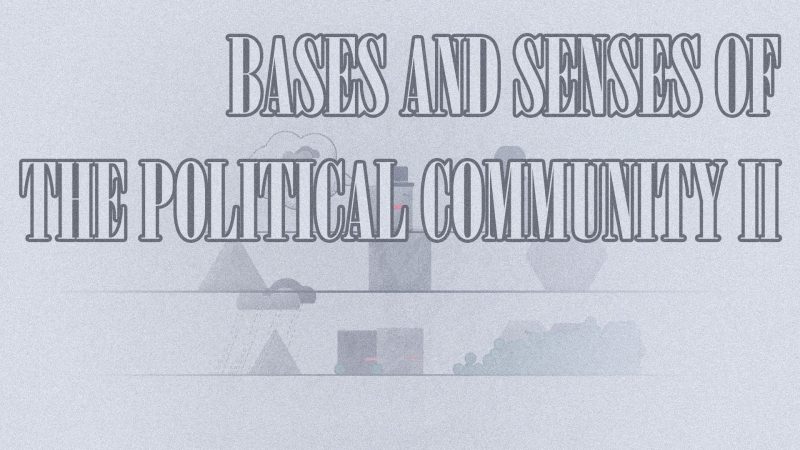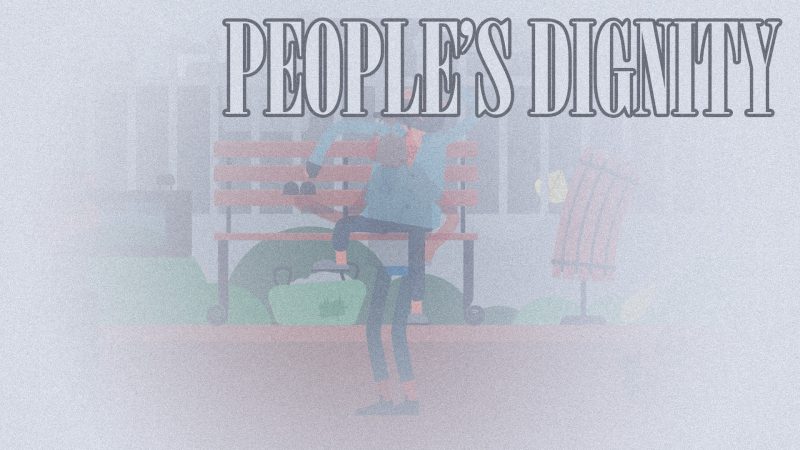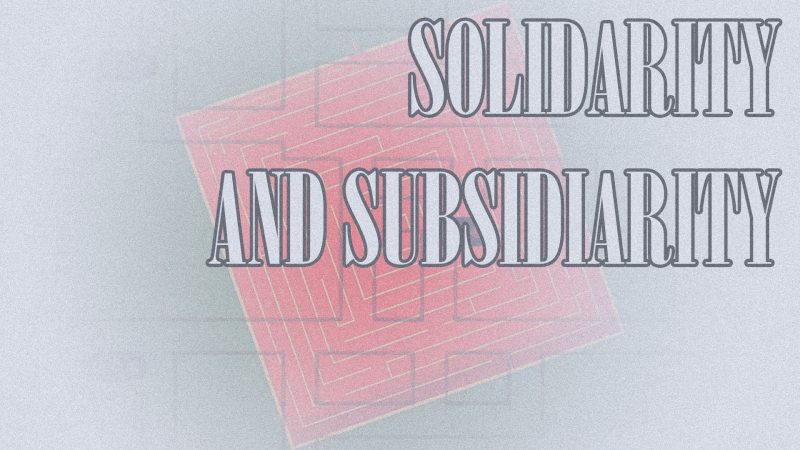We are living bad times for the common good. Hedonistic and individualistic society undermines the foundations of social and political life. Individual interests and conveniences are imposed on the common good needs.
To better understand this, we can ask ourselves: “What is the common good?”. The common good is the sum total of social conditions which allow people, either as groups or as individuals, to reach their fulfillment more fully and more easily. Nevertheless, individualism rejects that, because it is needed to accept and to put into practice four basic ideas.
- Respect for each person’s dignity and the searching of its practical recognition.
- A righteous social development, for each person must have what he or she needs to live a real human life.
- Peace as stability and security of a righteous social order.
- Prioritize the impoverished needs.
But in a society as these of ours, where individualism leads to a lack of perspective on the general welfare, impoverished people are especially beaten and the very foundations of democracy are weakened.
Our democratic systems are in crisis because they have lost the ability to decide according to the common good. All social answers are inspected under two criteria: electoral or financial strength from the groups behind political parties. That is a deviation and what it produces is distrust and apathy among people, who are more and more fewer actives in political life. Civic spirit vanishes among the population.
The searching for common good has also a transcendent dimension and for the Social Doctrine, the common good is superior to any other interest. Democracy presupposes in people the ability to live in a community, solidarity, responsibility, and so on. But those virtues are not grown on trees. Where they come from, then?
If we want responsible and participative citizens who promote equality, liberty, and justice, How are we teaching those values and attitudes?
DSI sentence
Men, both as individuals and as intermediate groups, are required to make their own specific contributions to the general welfare. The main consequence of this is that they must harmonize their own interests with the needs of others.
JOHN XXIII, Pacem in terris n. 53
Act
What do you think is more needed around us in order to reach the aim that both people and social organizations search for the common good better and more?
Download the PDF attached
Previous video:
Next video:
You Might also like
-
Bases and senses of the political community 2
The searching for common good demands the constant searching for others welfare the same way as the own welfare. This way, every form of social organization has sense according to the common good. That is, according to the creation of social conditions where self-realization of people can be achieved. There are two implications:
-
People’s dignity
Our dignity, who or what gives it to us? The money? The fame? The things? The laws? None of that. We have it since our birth. Each person is unique and he or she must be respected in his or her singularity. However, a lot of situations are fighting against that respect. Being unique does not mean clothing or speaking in one way or another.
-
Solidarity and subsidiarity
The common good. Let’s imagine its searching as a labyrinth where we must reach the center. In that case, solidarity would be the very map and subsidiarity would be the marks inside the map. The hedonistic and individualistic society has deformed reality turning it into a good feeling without consequences on our way of living nor our social organization.




